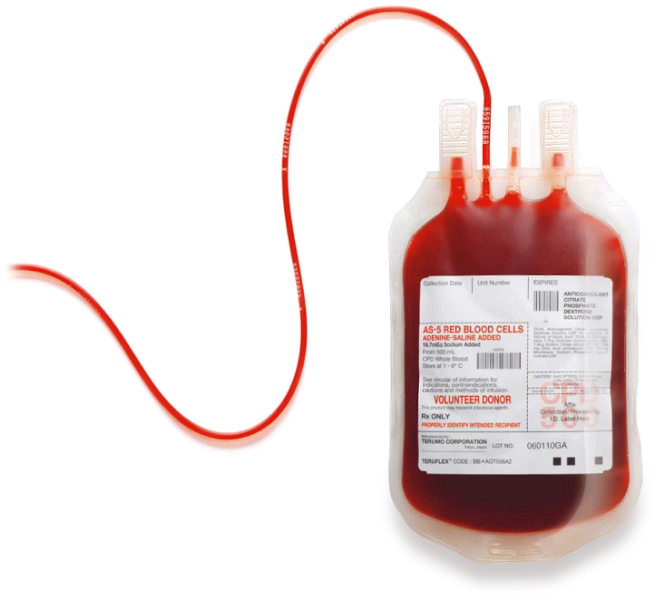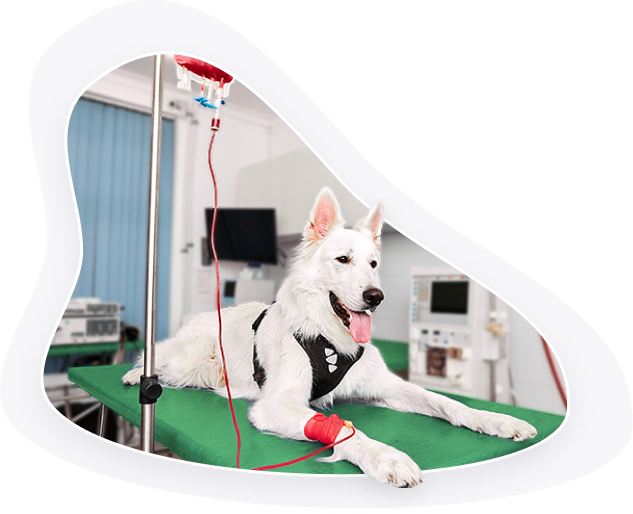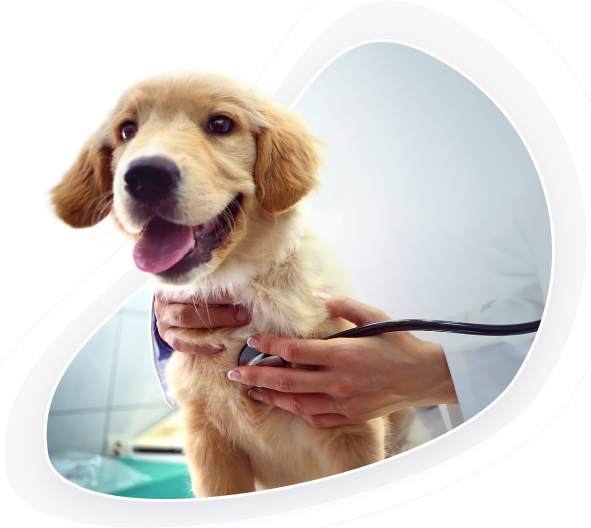
Why do we need a blood bank?
Severely ill animals often require blood transfusions.
- severe trauma,
- wounds,
- bleeding,
- C-section,
- severe oncological and orthopedic surgeries,
- patients hospitalized to intensive care unit.
All of them requires blood transfusion!
Very often, time goes by minutes and the owners just do not have time to find a donor, transport him to the clinic and help their pet in time. Lots of patients could have been saved by intensivists if the bank had the suitable blood.
Increase the animals' chances of survival by joining the blood donation program!




What do you get by providing donors?
Is there any risk of infection to the recipient from the donor?
In veterinary medicine, direct transfusion from the donor to the patient is not practiced. The blood is first collected in special containers, which are transferred further to the blood bank.
If a recipient needs a blood transfusion, the blood from the blood bank is transported to the patient. Therefore, there can be no infection from the recipient to the donor.


How does blood donation occur?
Blood sampling in dogs is carried out from the jugular vein or veins of the extremities. The duration of the procedure is 15-20 minutes. If the dog's temperament is calm, sedation is usually not required.
Blood sampling in cats is carried out from the jugular vein in the neck, less often from the femoral vein. This procedure also takes 15-20 minutes. Blood sampling from cats is most often done under sedation to minimize stress.
Is sedation dangerous for the donor?
Before blood sampling, doctors conduct a clinical examination. For breeds of cats at risk for heart disease, a screening echo of the heart is performed.
Blood sampling is carried out under the control of a veterinary anesthesiologist, which minimizes the risks of sedation. Doctors monitor the patient's exit from sedation.

If you are limited in time
If the owner is limited in time, it is possible to leave the pet at our day hospital until the evening.
How often can blood be donated?
With good nutrition and proper care, it is permissible to donate blood every 4-6 weeks without harm to the pet's health.

Are there any contraindications to become a donor?

Who is the ideal donor?
| Cats | Dogs | |
|---|---|---|
| Age | from 2 to 8 years | |
| Weight | from 4 kg | from 20 kg |
| Vaccination | mandatory | |
| Contact with animals that have access to the street | missing | available |
| Health condition | clinically healthy | |
| Neutering | welcome | |
How to know the details?

